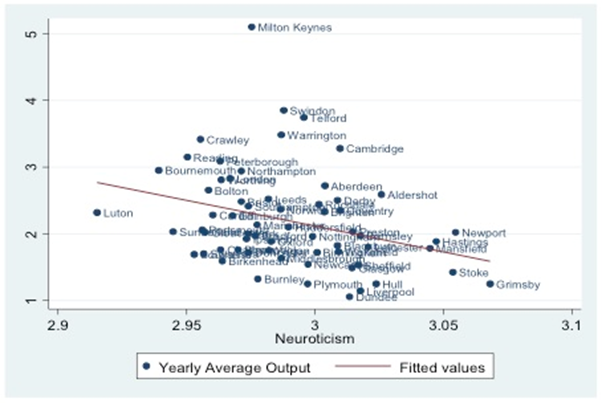Making space for psychological factors: urban economic growth and personality traits in the UK
The successful collaboration of our Center of Expertise In the LEAD with Ron Martin and Jason Rentfrow, both from the University of Cambridge, has led to a new paper on the relevance of personality traits for urban economic growth in the UK. The full paper is now online as an advanced article of the Journal of Economic Geography.
In this new paper, we argue that economic growth differences across regions and cities can only be partly explained by standard explanations in economic geography. One reason for this might be the neglect of the psychological make-up of cities and its citizens. To assess the value added of incorporating psychological factors alongside the more standard explanations, this paper tests the relevance of personality traits for economic growth for a sample of UK cities. We argue that Neuroticism and Conscientiousness, and the traits that make up entrepreneurship culture help to explain urban growth differences.
The personality scores of >400,000 UK residents are combined with economic data for 63 UK cities from 1981 to 2011. We find that both Neuroticism and entrepreneurship culture matter for economic growth. Our main contribution is that geographically clustered personality traits help to understand economic growth differences, and add explanatory power over and above standard determinants, also when the recursive relationship between personality traits and economic growth is taken into account.
To give a flavor of our results, below this article is a plot of the relationship between the personality trait ‘Neuroticism’ and the average output growth per city.



